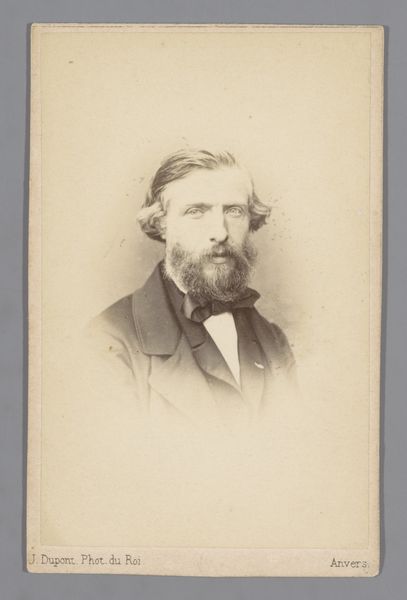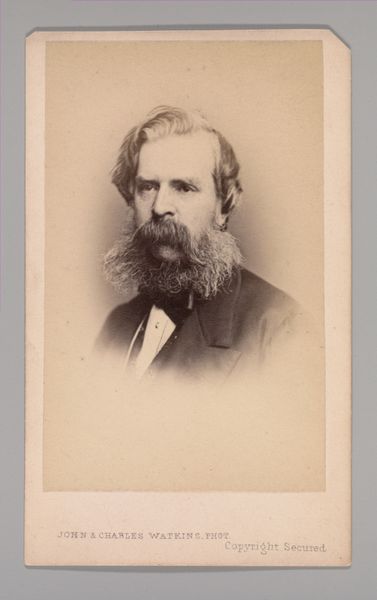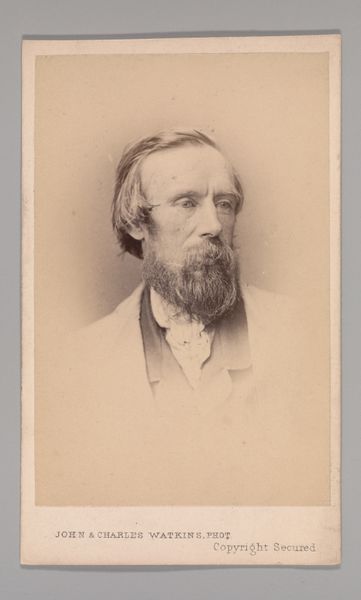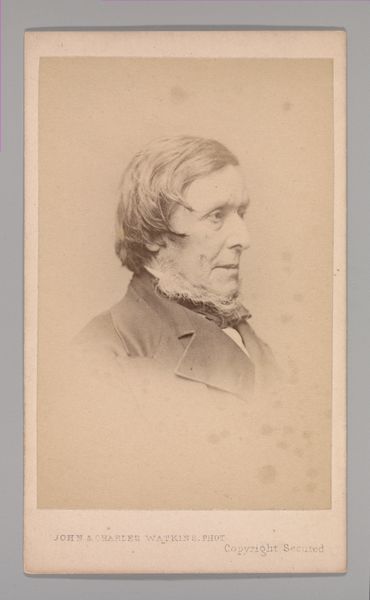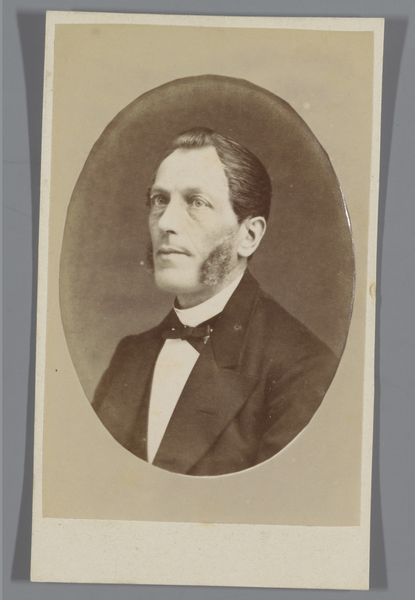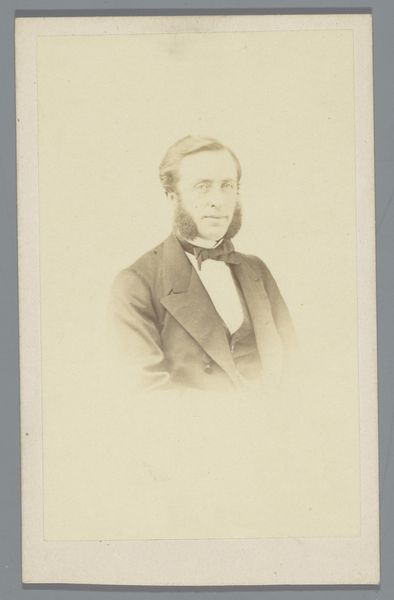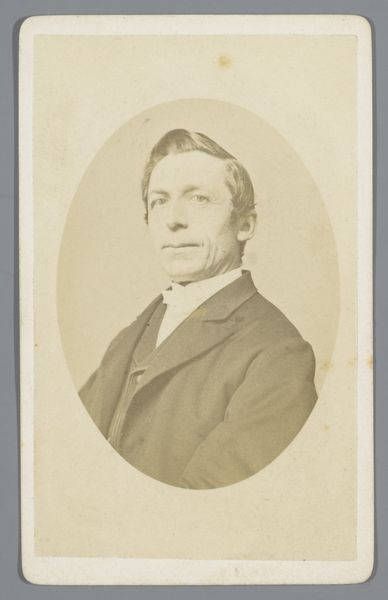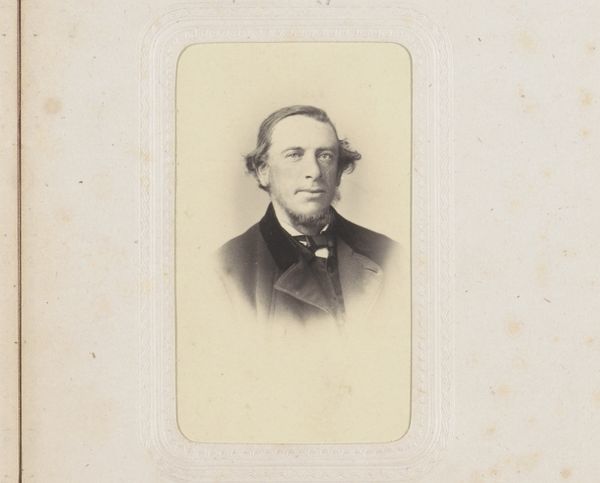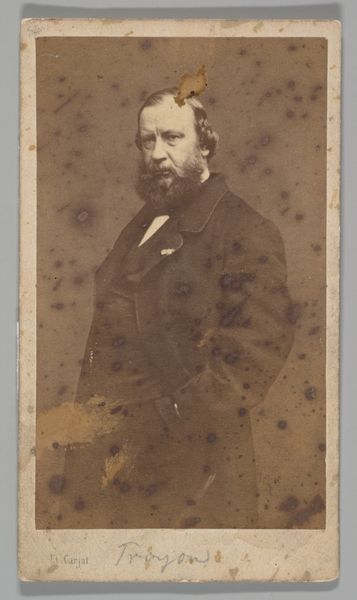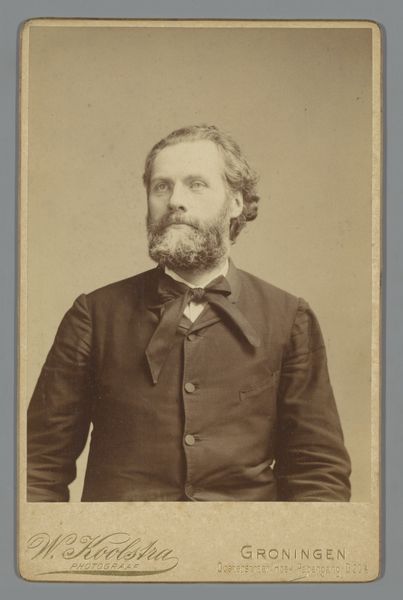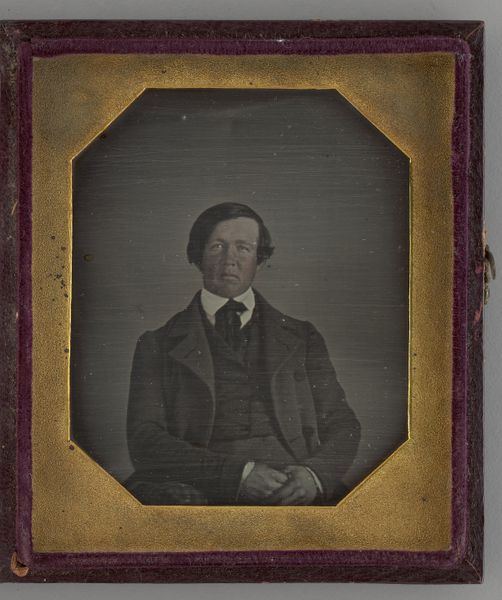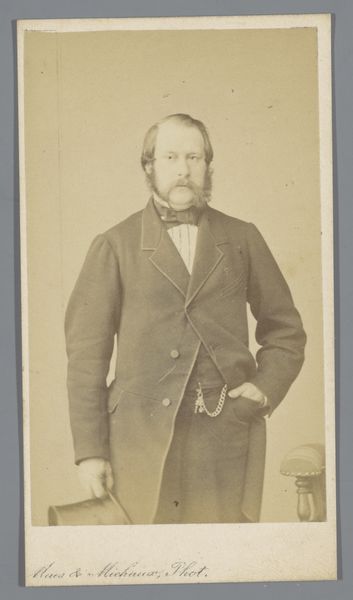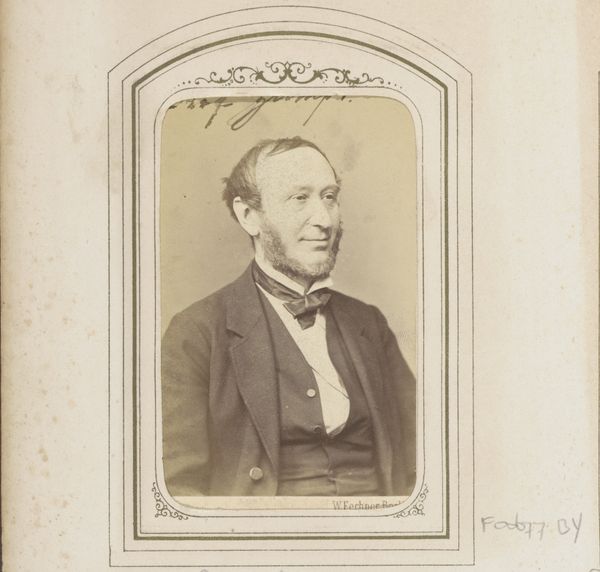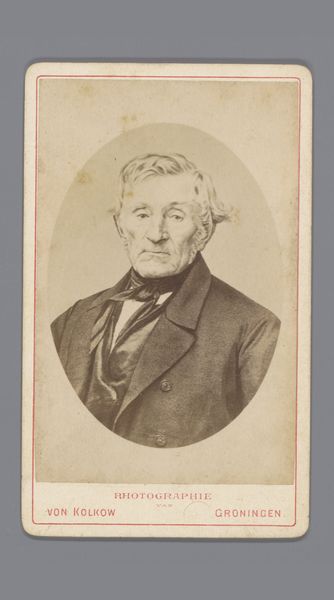
daguerreotype, photography
#
portrait
#
daguerreotype
#
photography
#
realism
Dimensions: 21.3 × 16.3 cm (8 1/2 × 6 1/2 in., plate); 30.5 × 25.3 × 0.8 cm (frame)
Copyright: Public Domain
This portrait of Erastus Hopkins was created by Southworth & Hawes, pioneering photographers who operated in Boston during the mid-19th century. It's a daguerreotype, which was an early photographic process that used a silver-plated copper sheet, treated with chemicals and exposed to light in a camera. The resulting image is incredibly detailed and has a unique, almost ethereal quality. Notice the way the light catches Hopkins's hair and beard. This effect comes from the reflective surface of the silver plate. Daguerreotypes were prized for their clarity and permanence, but they were also unique objects, each one-of-a-kind. The labor involved was considerable, demanding both scientific knowledge and artistic skill. Consider the social context: photography democratized portraiture, making it accessible to a wider segment of society than ever before. This technology shifted artistic production from hand-made to mechanically reproduced and it had a profound impact on the very definition of art.
Comments
No comments
Be the first to comment and join the conversation on the ultimate creative platform.
